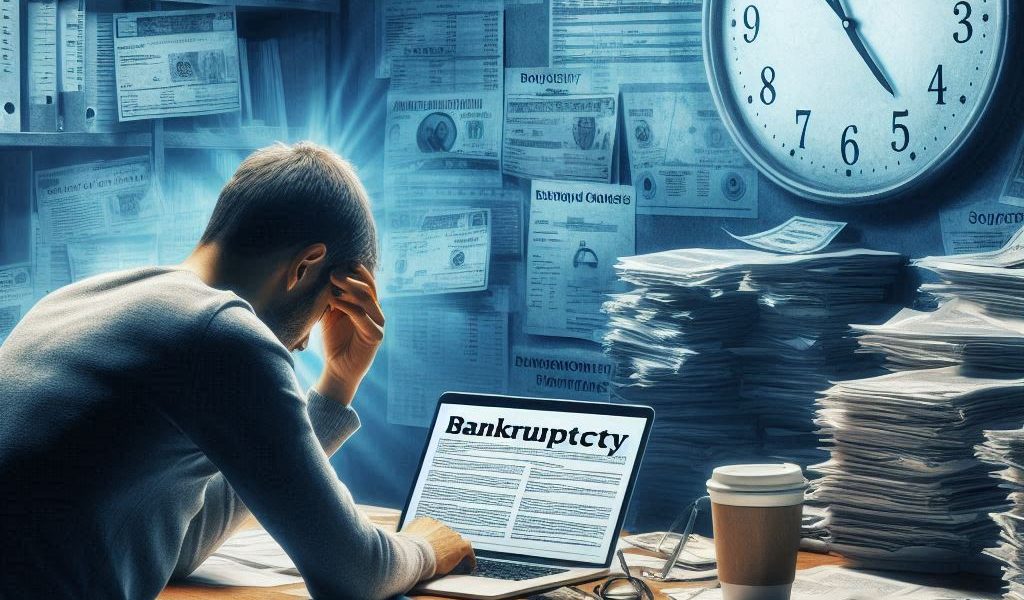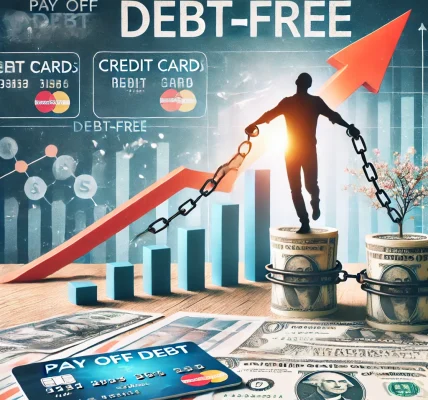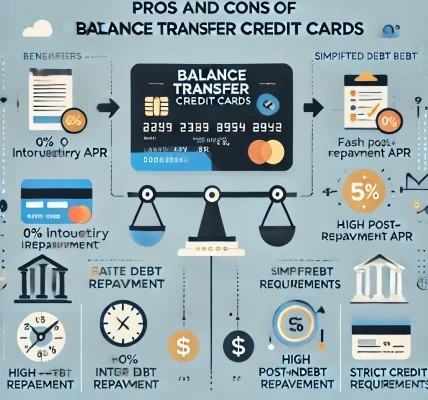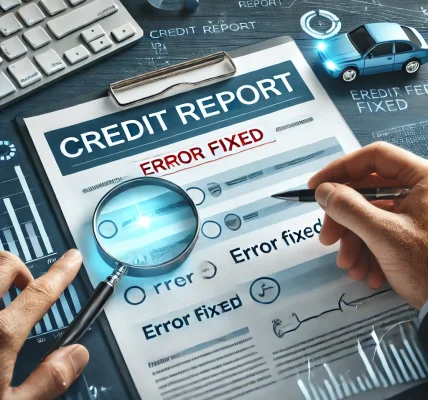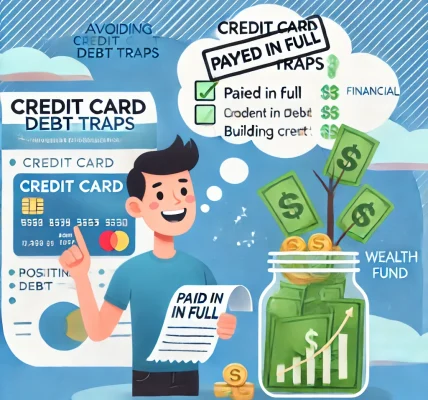Introduction:
Bankruptcy is a challenging financial setback that many individuals and businesses face when they can no longer pay off their debts. While it provides a fresh financial start for many, it comes with long-lasting consequences, particularly for your credit score. The good news is that even though bankruptcy can harm your credit in the short term, with careful planning and patience, you can rebuild your credit and regain financial stability.
In this article, we’ll discuss how bankruptcy affects your credit, the impact it can have on your financial future, and most importantly, what you can do to rebuild your credit after bankruptcy.
What is Bankruptcy?
Before diving into the effects on your credit, it’s important to understand what bankruptcy is and the different types available:
- Chapter 7 Bankruptcy: Often referred to as “liquidation bankruptcy,” Chapter 7 involves the discharge of most of your unsecured debts, such as credit card balances, medical bills, and personal loans. However, assets such as your home or car may be sold off to pay creditors.
- Chapter 13 Bankruptcy: Known as “reorganization bankruptcy,” Chapter 13 allows you to keep your assets while reorganizing your debts. You’ll propose a repayment plan to the court that spans 3-5 years.
While bankruptcy can provide relief, it’s not a decision to be taken lightly. It can have significant effects on your credit report and your financial future.
How Does Bankruptcy Affect Your Credit Score?
When you file for bankruptcy, it leaves a mark on your credit report that can last for several years. Here are the primary ways bankruptcy affects your credit:
- Immediate Impact on Your Credit Score: Bankruptcy can cause a significant drop in your credit score, often by 200-300 points, depending on your credit history before filing. The more recent your bankruptcy, the more severe the impact on your credit score will be.
- Bankruptcy Entry on Your Credit Report: Chapter 7 bankruptcy will typically remain on your credit report for 10 years, while Chapter 13 stays for 7 years. This negative mark can make it challenging to secure loans, mortgages, or even a credit card.
- Difficulty Obtaining Credit: Lenders may view you as a high-risk borrower, leading to higher interest rates, less favorable loan terms, or outright denial of credit. Even if you’re approved for a loan or credit card after bankruptcy, you may face higher fees.
- Negative Perception by Lenders: Having bankruptcy on your credit history signals to lenders that you’ve been unable to manage your debts, which can make it more difficult to secure credit in the future.
What Are the Long-Term Effects of Bankruptcy on Your Credit?
While the immediate effects of bankruptcy on your credit can be severe, it’s important to understand the longer-term impact. Here’s what you can expect:
- Difficulty Qualifying for Major Loans: If you’re looking to buy a home or secure a car loan, a bankruptcy on your credit report can make it harder to qualify for favorable loan terms. In many cases, you may be denied credit outright.
- Higher Interest Rates: Even if you are able to secure credit after bankruptcy, you’ll likely face significantly higher interest rates. Lenders may view you as a higher-risk borrower, so they compensate by charging higher rates.
- Challenges with Renting a Home: Many landlords run credit checks before approving tenants, and a bankruptcy on your credit report may affect your chances of securing a rental agreement, especially for high-demand properties.
- Employer Credit Checks: Some employers check credit reports as part of their hiring process, particularly for positions that involve handling money or sensitive financial information. A bankruptcy may limit your employment opportunities in these cases.
Can You Rebuild Your Credit After Bankruptcy?
The good news is that while bankruptcy does hurt your credit, it doesn’t define your financial future. You can take proactive steps to rebuild your credit after bankruptcy. Here’s how:
1. Understand Your Credit Report:
Start by getting a copy of your credit report from all three major credit bureaus—Experian, Equifax, and TransUnion. This will help you understand what’s on your credit report, including any debts that were discharged during bankruptcy and any remaining obligations.
2. Make Timely Payments on Remaining Debts:
If you have any debts left after bankruptcy (such as student loans or alimony), be sure to make timely payments. Payment history is the most important factor in your credit score, so staying current on any remaining debts can help improve your score over time.
3. Apply for a Secured Credit Card:
A secured credit card requires you to deposit a sum of money with the credit card issuer, which serves as collateral. Using a secured card responsibly can help rebuild your credit score. Make small purchases and pay off the balance in full each month.
4. Become an Authorized User on Someone Else’s Account:
If you have a family member or friend with a good credit history, ask if you can be added as an authorized user on their credit card. This can help you build positive credit history, even if you’re not the primary cardholder.
5. Avoid Opening Too Many New Accounts:
It can be tempting to open new credit accounts after bankruptcy to rebuild your credit, but opening too many accounts in a short time can hurt your score. Focus on responsible use of the accounts you do have rather than rushing to open new ones.
6. Keep Credit Utilization Low:
If you have credit cards, aim to keep your credit utilization ratio below 30%. This means using less than 30% of your available credit limit. High credit utilization can hurt your credit score.
7. Set a Budget and Stick to It:
Rebuilding your credit after bankruptcy isn’t just about opening new accounts or making payments on time. It’s about developing healthy financial habits. Create a budget that allows you to live within your means and avoid getting into debt again.
How Long Will It Take to Recover from Bankruptcy?
Rebuilding your credit after bankruptcy is a gradual process. On average, it can take anywhere from 3 to 5 years to fully recover your credit score, depending on how you handle your finances during that period.
- Short-Term Recovery: You can start seeing improvements in your score within the first year by paying bills on time, using credit responsibly, and avoiding new debts.
- Long-Term Recovery: Over time, your credit report will show a history of positive credit behavior, helping to offset the bankruptcy.
Conclusion:
Bankruptcy is a serious financial decision, and it can have a profound impact on your credit. However, it’s not the end of your financial journey. With time, patience, and responsible financial habits, you can rebuild your credit and regain control of your financial future.
